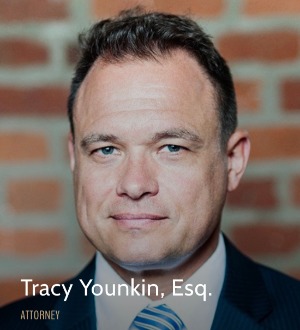With all the electronic bill paying and online banking that goes on today, it's important to make provisions for them. Otherwise, things could get tough for your loved ones later on.
by: John M. GoralkaJune 15, 2017
Thanks to the Internet, most companies provide you with the option to receive electronic statements, set up auto payments or pay your bills online. Many businesses are in favor of these methods and support online account management and paperless billing. It’s less expensive, more convenient and more environmentally friendly for them to send out bills via email than it is to mail them to each customer.
One issue with this type of account management is what will happen with these accounts when you die or become incapacitated? Without physical evidence of your bills or statements for your accounts, how will your successor trustee or family members be able to manage your bills or finances when the time comes? How will they know about bills due, or money owed if they are unable to access your email or online accounts?
Online profiles with personal information, pictures and contacts are increasingly used by all of us. These include Facebook, LinkedIn, Twitter and Instagram. How are these accounts or digital assets handled upon your death or incapacity?
Your estate plan should be designed to make the administration process as easy as possible for your loved ones. This includes making it convenient to manage your assets upon your incapacity or death and saving them the hassle of sorting through your paperwork to collect assets and pay your bills. Without specific provisions in your estate plan and careful planning, access to this critical information can become difficult for your family or loved ones.
Federal law regulating access to digital property does not yet exist. At this time, 29 states have established legislation or laws to protect digital assets and to provide a deceased person’s family procedures and rights to manage those accounts and assets after death.
On Jan. 1, 2017, the Uniform Fiduciary Access to Digital Assets Act (the “Act”) became effective in California. California is one of the many states in the U.S. to adopt this law, which establishes a process for allowing your executor, trustee, power of attorney or court-appointed conservator to access your online accounts after your death. This act also allows you to designate some (or portions) of your account as “off-limits” after your death. This act has been added to the California Probate Code sections 870 – 884. Other states have established separate laws which differ from the Act. The states that have adopted either the Act or other similar laws or legislation include Arizona, Colorado, Connecticut, Delaware, Florida, Hawaii, Idaho, Illinois, Indiana, Maryland, Michigan, Minnesota, Nebraska, Nevada, New Jersey (in progress as of May 1, 2017) New York, North Carolina, Oklahoma, Oregon, Pennsylvania (in progress as of Nov. 19, 2015), Rhode Island, South Carolina, South Dakota, Tennessee, Virginia, Washington, Wisconsin and Wyoming. As laws continue to change this list may change from time to time. Please check with your local legislative branch to determine if your state has enacted this Act.
Your Durable Power of Attorney and your trust instruments should include provisions consistent with California Probate Code sections 870 – 884 or the versions, if any, in effect for your state. These sections provide for naming a fiduciary to act on your behalf for these critical accounts, assets and profiles.
In today’s digital world, most of our financial transactions and communications occur online. Photographs, websites and Internet profiles are now almost expected for all of us. You can do almost anything online, and many people choose to do so. These accounts have limited access with protected passwords, which can create problems when the account holder dies because no one has access to their passwords. Planning now can save a lot of heartache later.
What do you do if you are not in a state of jurisdiction with protective laws? Who gets access to your Instagram, Facebook, LinkedIn or Twitter account when you die? In the absence of protective legislation, those accounts or assets are governed by the terms of the service agreement when the account was opened. Under these agreements, family members would need confidential identification information and passwords. Consider the following steps:
1. Inventory Your Accounts.
Document an inventory of the accounts including login IDs and passwords. That information should be maintained in a secure location.
2. Create an Online Vault.
This would be a place to keep passwords, identification or login information and other sensitive information. Two options are available through Everplans or Dropbox.
3. Establish a Detailed Digital Asset Plan.
This plan would have a clear, specific statement of intent about who would gain access to what information. This statement of intent should address all accounts, past, present and future.
4. Carefully Select Your Trustee, Executor or Representative.
When making your decision, consider the private and confidential information that will be accessible. Oftentimes, the information embedded in the digital assets is highly personal and confidential.


























